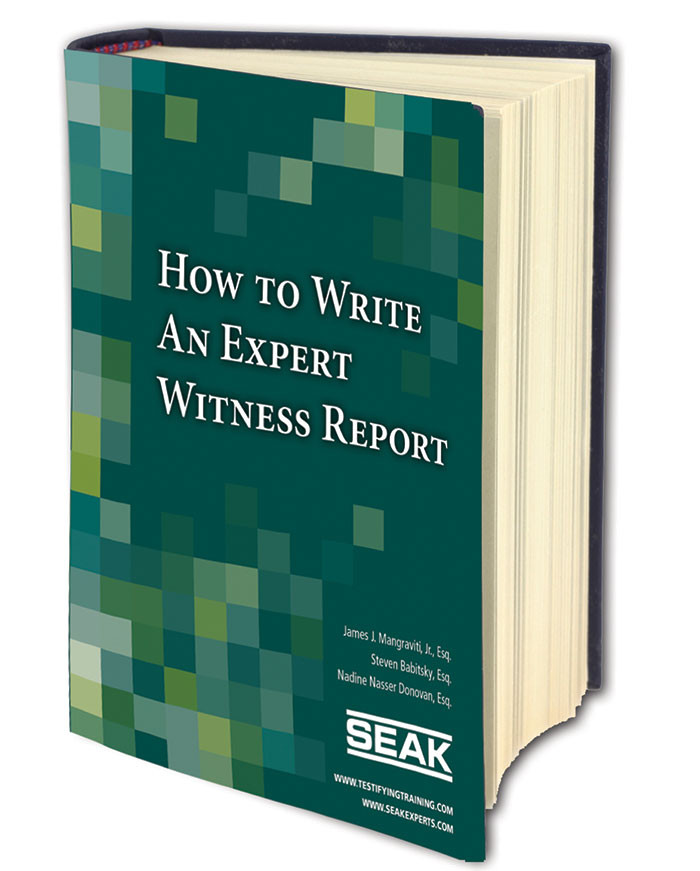How to Draft Your First Expert Witness Report
One of the key functions of an expert witness is to draft an expert witness report. There is generally no strict requirement for a particular expert witness report format. A typical expert witness report example may contain:
1. The expert witness assignment (i.e. the role of an expert witness in the case at hand).
2. The expert witness’s qualifications.
3. A description of the expert witness’s document review, research, & investigation.
4. The expert witness’s opinion.
For civil cases in Federal Court, expert witness reports must comply with Federal Rule of Civil Procedure 26(a)(2)(B) and contain:
(i) a complete statement of all opinions the witness will express and the basis and reasons for them;
(ii) the facts or data considered by the witness in forming them;
(iii) any exhibits that will be used to summarize or support them;
(iv) the witness’s qualifications, including a list of all publications authored in the previous 10 years;
(v) a list of all other cases in which, during the previous 4 years, the witness testified as an expert at trial or by deposition; and
(vi) a statement of the compensation to be paid for the study and testimony in the case.
Free Whitepaper: How to Draft a Powerful, Persuasive, and Understandable Expert Witness Report
For first time expert witnesses, obtaining an expert witness report example before drafting their first report is often a priority task. Many expert witnesses use as their model expert witness report samples from other experts. The problem with using an expert witness report model from another expert, is that the model report being used may not be of the highest quality.
A better approach is obtaining training in expert witness report writing. Available resources include the two-day interactive training seminar How to Write a Bulletproof Expert Witness Report and our new text How to Write an Expert Witness Report. Training and tutoring in report writing is also available.

